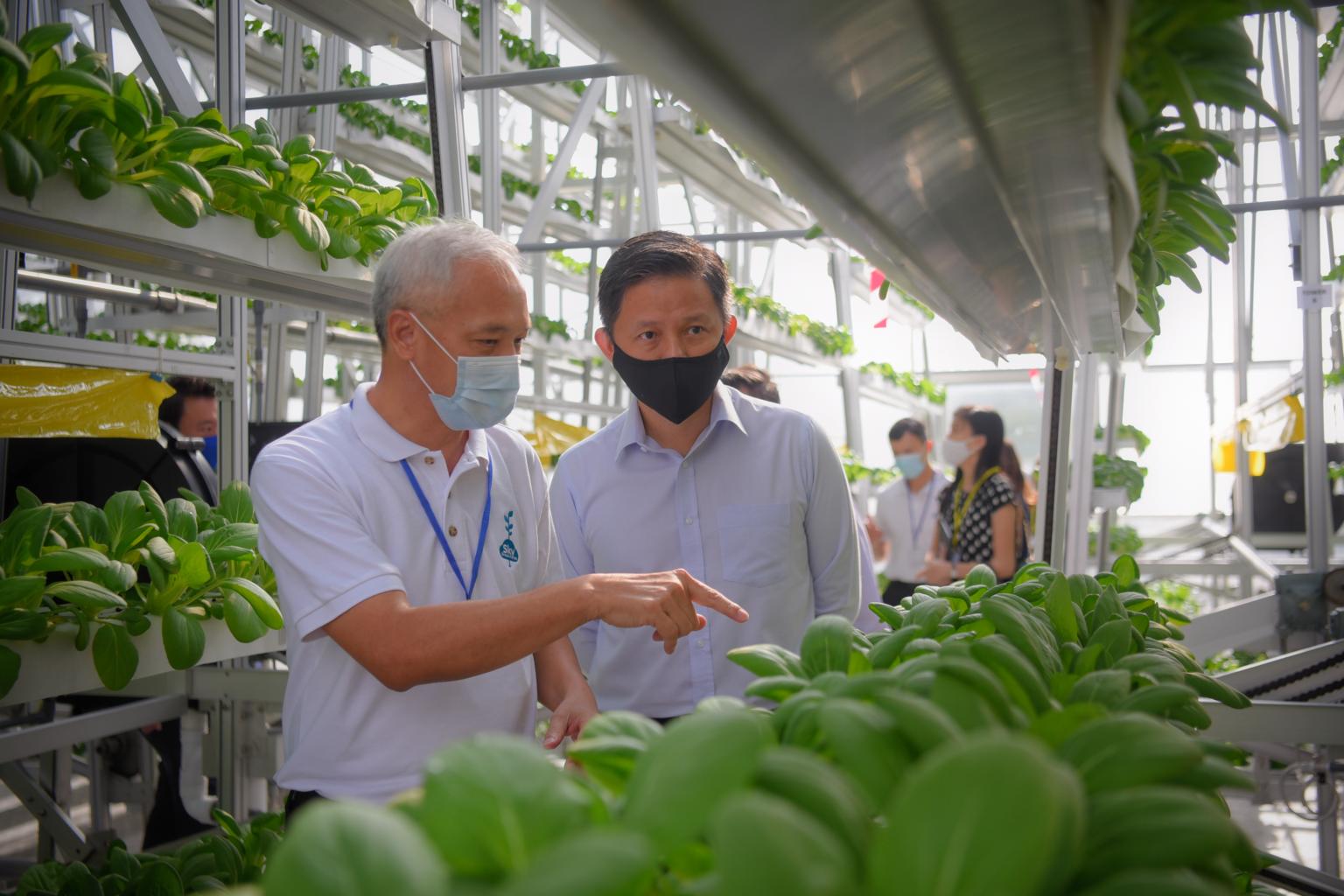S'pore high-tech farms seek to export not just produce but their technology too
Sign up now: Get ST's newsletters delivered to your inbox

Minister for Trade and Industry Chan Chun Sing at the launch event for the new micro-farming system by Sky Urban Solutions on March 16.
ST PHOTO: MARK CHEONG
SINGAPORE - Farming in Singapore is going high-tech, and some companies here are setting their sights beyond just selling their produce.
Local vegetable company Sky Urban Solutions, for one, yesterday launched a new micro-farming system that combines aquaculture, vertical vegetable farming and customisable spaces for storage or farm stays, which it wants to export around the world.
Such novel solutions that agri-food tech companies develop here not only address Singapore's food security challenges but could help other countries as well, said Minister for Trade and Industry Chan Chun Sing at the launch event.
He added that having a portfolio of different agri-tech technologies that address various challenges here - such as systems that make more efficient use of water or energy, or those that allow alternative crops such as potatoes to be grown - would allow Singapore to use them to scale up local production when needed, even if they are not implemented during normal times.
Sky Urban Solutions' modular aquaculture system is used for rearing food fish such as tilapia and sultan fish on the ground floor in tanks built in freight containers.
Above the containers is a greenhouse with the company's signature tiered system it uses at its Sky Greens farm in Lim Chu Kang to grow crops like cai xin and xiao bai cai.
The size of the micro-farm, for instance, can be customised depending on the needs of the farmers, said Sky Urban Solutions project executive Norman Koh.
As the base is made up of the freight containers, the footprint of the entire operations is customisable to size requirements.
Other than for housing fish tanks, the freight containers can also be used for other purposes, such as rooms for cold storage or processing, farm stays or meeting rooms for offsite business meetings, Mr Koh added.
The system is also designed to be sustainable. The solar panels on the roof will be able to power the entire farm operations, said Mr Koh.
The low-energy consumption of the farm is due in part to a hydraulic pump system that leverages gravity to run some of its farm processes.
One basketball-court sized micro farm system, which includes a greenhouse as well as tanks for fish and prawns, will cost about US$300,000 (S$403,000), said Mr Jack Ng, chief executive of Sky Urban Solutions.
His Lim Chu Kang farm, which has an output of 1 tonne of vegetables a day, is already exporting its vertical farming system to six countries including Thailand and Canada.
On Tuesday, it signified its intention to venture farther afield by inking two agreements with institutions in India, China and Malaysia, which could involve collaboration such as jointly developing new farms in target markets or supporting farming technology.
Speaking to reporters, Mr Chan said that Singapore, with the constraints it faces in terms of land, water, energy and manpower, is a microcosm of the rest of the world.
While food security has been a perennial concern in Singapore and worldwide, he said the Covid-19 pandemic accentuated the issue and made people more aware of it.
"That provides us with an opportunity to see how we can compete in this sector," Mr Chan added.


